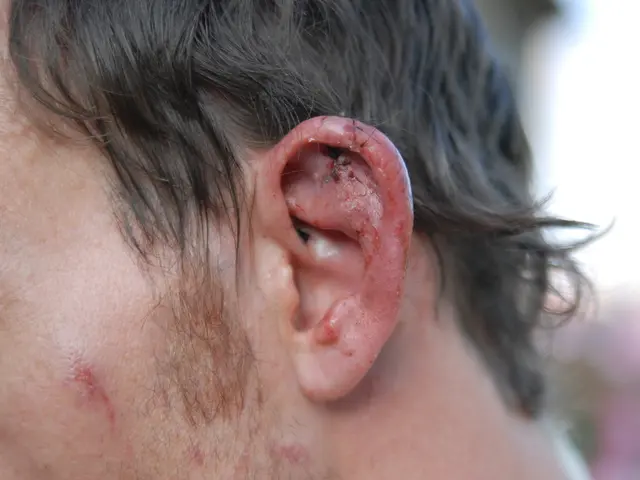Shee-yeah! Banning Disposable E-Cigarettes in the UK: What's Up with That?
- charming appeal
- health hazards
- environmental woes
- crackdown on these bad boys
- scrap 'em or face the consequences
"UK enforces prohibition on individual e-cigarettes" - Single-use e-cigarettes are now prohibited in the UK as regulatory measures come into effect.
Disposable e-cigarettes, flaunting adorable hues and tantalizing flavors like choco-loco, cotton candy heaven, or fresh mint blast, are like catnip for the younger generation. But here's the buzzkill: these little devil sticks might as well be packed with a ticking time bomb of lung and heart diseases, possibly even cancer. And guess what? Around five million of these babies are tossed away every week in the UK, impacting our beloved environment more than a Flamin' Galah's dinner party.
So, what's the fuss all about?
The Lowdown on E-Cigarettes
E-cigarettes, or "vapes" as fellow hipsters call 'em, have become the talk (and smoke) of the town. But let's not forget that these modern-day smoke signals are covered by the Tobacco Products Directive (TPD) in the UK. Although it regulates nicotine content to 20mg/ml, there've been no specific, exhaustive rules targeting disposable e-cigarettes. Fret not, there are safety standards and labeling requirements in place to keep you health-conscious cats and kittens in check.
But wait, there's more!
The Rest of the World's Verdict
The US, for instance, is all about that smooth flavor ban due to concerns regarding easy access for the youngsters. The Food and Drug Administration (FDA) is busy cracking down on compliance with Pre-Market Tobacco Product Applications (PMTAs) for e-cigarettes, including disposables.
In Australia, restrictions on e-cigarette sales and use, disposables included, vary from state to state. New Zealand, on the other hand, is focusing on stricter regulations to reduce youth access and environmental impact.
Health Issues: An Unpleasant Cloud
Disposable e-cigarettes can cause quite a commotion in our bodies:
- Nicotine Addiction: With higher nicotine levels, these little fellows increase the risks of addiction, particularly amongst the youth.
- Respiratory Issues: Hooked on vapes? Say goodbye to easy breaths, as e-cigarette use can lead to increased coughing, wheezing, and even asthma flare-ups.
- Cancer and DNA Damage: Some e-cigarette aerosol chemicals can wreak havoc on our DNA, potentially leading to the big C.
Environmental Impact: A Shocking Reality
Disposable e-cigarettes are showing our mother nature a middle finger:
- Waste and Pollution: Each spent vape contains a sealed lithium-ion battery, toxic metals, nicotine leftovers, and plastics, adding to the trash pile and pollution.
- Fire Hazards: The batteries in disposable vapes can ignite a inferno, if not discarded carefully.
Long story short, although regulations differ from country to country, there's a growing consensus on the urgency to tackle the health risks and environmental impacts of disposable e-cigarettes. So, hang onto your hats, folks, because the war on waste is stepping up its game!
- The community should adopt a policy to address the rising use of disposable e-cigarettes, considering their potential health hazards and environmental woes.
- Alongside banning disposable e-cigarettes, the UK could also explore provisions for mandatory vocational training programs in science, health-and-wellness, fitness-and-exercise, and environmental-science, to promote awareness about the negative effects of these products.
- In addition to scraping disposable e-cigarettes or facing the consequences as suggested by the UK's crackdown, other countries could also consider implementing vocational training programs for their youth to educate them about the potential dangers and proper disposal of these products, ultimately contributing to a cleaner and healthier environment.






